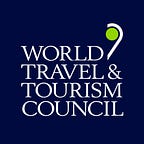Technology Trends and the Future of Travel
By Rob Torres, Managing Director, Google
At Google, we believe that we are only 1% of the way to how technology will transform our lives and businesses. The foundation of acceleration for the next 99% has been fully coming into place with the combination of mobile devices, increased connectivity, and machine learning. We believe this combination of transformational technology will challenge each company to reimagine their core business, resulting in new and innovative approaches to the historic complexities of our industry.
MOBILE-FIRST USER EXPERIENCE
Over the next 4 years, another 1 billion people globally will be coming online in emerging markets; for the vast majority of these people, a mobile device will be their only computing device. A burgeoning population of mobile users, however, remains starkly in contrast to the slow pace of mobile development that we see across travel companies at large.
The onus of being mobile-first is now on travel companies; we owe it to global mobile users to both improve baseline experience (in terms of speed and usability) as well as to take advantage of the powerful capabilities of mobile devices (there are about 10 distinct sensors in most smartphones). Progressive Web App technology is delivering lightning fast speeds for companies like MakeMyTrip and Booking.com as well as offline functionality for AirBerlin passengers on the go. Uber, which used the power of GPS to revolutionise transportation, recently allowed travellers to book simply via phone number in India, where downloading the full app might present a barrier for many users.
From initial research to on-location assistance, mobile devices have the ability to truly transform the core of travel experience… but only if companies reimagine their offering in a user and mobile-first way.
So what?
- Deliver a mobile experience that assists the traveller, agnostic of web vs. app channel
- Develop for fast page load times (goal of ~2 seconds) on global networks (2–3G)
- Leverage mobile technologies (e.g. GPS, accelerometer, camera) to create inspirational or highly useful travel experiences
IMMERSIVE CONNECTIVITY
A few years ago, I wrote that true transformation would occur when travellers were being assisted by technology, but the technology itself was no longer noticeable. Between increased overall connectivity across device types and the rise in virtual/augmented reality, we appear to be moving solidly in that direction.
Computing infuses our daily lives, built increasingly on devices that work together to solve complex user problems. Our TVs and phones are connected through systems that extend to our cars, our thermostats, our watches. Correspondingly, as connected devices become ubiquitous, the dominance and even physical presence of any one specific device fades.
New ways of interacting with computing also accelerate this trend. Progress in natural language processing means we will use fewer keyboards; for the global traveller, being able to converse, without stopping to type, will be transformational. Virtual reality (fully immersive digital worlds) can deliver travel experiences independent of location. Augmented reality (digital objects presented in the physical world) enables an entirely new layer of interaction with one’s surroundings.
Ironically, with more devices and technologies, we are able to focus more closely on the experience being delivered.
So what?
- Develop relevant technology partnerships to create experiences that delight your user
- Deliver compelling brand experiences that extend beyond your existing consumer base
MACHINE LEARNING
Major technology shifts come in roughly decade-long waves — from the PC to the web to the smartphone. Though travel, as an industry, is still playing catchup in terms of mobile adoption, broader technological shifts are already driving us all to consider the next wave: machine learning. What is machine learning? Simply put, it means that computers don’t need to be told exactly what to do. They can be given an objective and lots of data and then teach themselves how best to achieve the objective.
The concept of machine learning may be applied to transform nearly every component of how businesses function. One example of this connects back to the importance of mobile experience: Google recently partnered with leading data analytics company SOASTA to use machine learning to determine the biggest drivers of mobile bounce rate and conversion rate.
The power of machine learning allows us to solve highly complex problems faster than ever before. Most importantly, the nature of this data-driven transformation is that it is something that any company, no matter how big or small, can use to evolve or scale their business for the future.
So what?
● Leverage existing machine learning algorithms, like the open source code from SOASTA, to improve insights and business operation.
● Hire and develop a strong data science team, employing the best and brightest to innovate with your company’s goals in mind
CHALLENGE YOUR THINKING
Travel companies cannot hope to simply add new features to old business models and succeed. Instead, we must always keep our eyes to the horizon, thinking about how certain transformational technology will allow us to reimagine our business in ways that benefit the user and the industry.
● Is your mobile experience fast, simple, and delightful? How can mobile experiences strengthen, and possibly even revolutionise, your core business?
● Are you leveraging the connectivity of devices or immersive experience to deliver a superior discovery, booking, and/or travel experience?
● How can you use machine learning to solve the biggest challenges in your business?
This article was contributed by a WTTC Industry Partner and published in March 2017 as part of the annual update to the Economic Impact Research from WTTC. The full report can be found here.
